AITA for requesting prayer breaks at work because my religious coworkers do even though I’m not religious?
In a bustling international company where faith and work intertwine, one atheist stands quietly on the sidelines, watching as the majority of coworkers step away multiple times a day to fulfill their religious duties.
The unfairness of these paid breaks weighs heavily on him, a silent ache of exclusion in a world where time is the most precious currency.
His frustration simmers beneath the surface, a longing not just for equality, but for recognition of his own inner needs. Defying the unspoken rules, he claims his right to pause and find peace in his own way—through meditation.
His initial request is met with resistance, a mirror of the barriers faced by those who don't fit the prevailing mold. Yet, persistence breaks through, and with a hastily sent email, the door opens.
This small victory is more than a break; it’s a profound assertion of his identity and a quiet challenge to a system built on tradition rather than fairness.


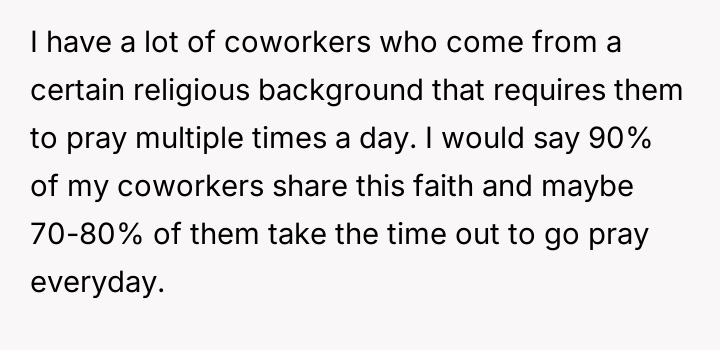

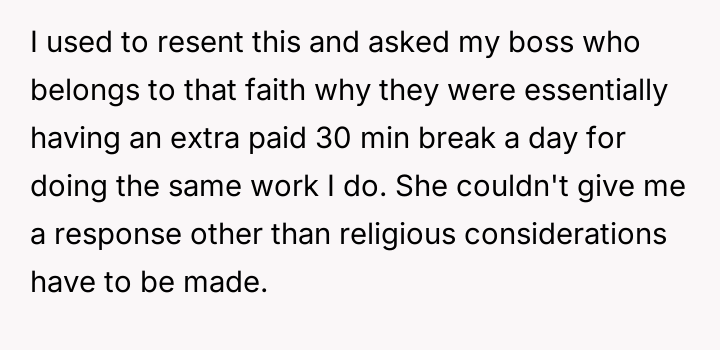
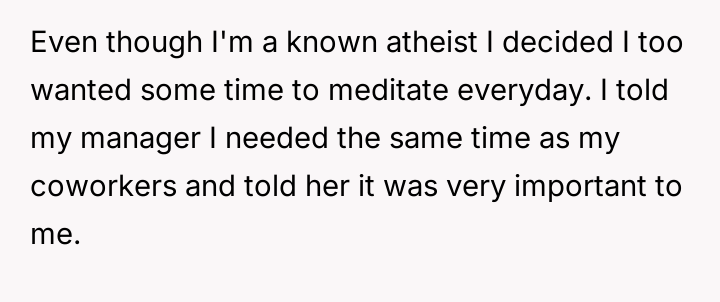
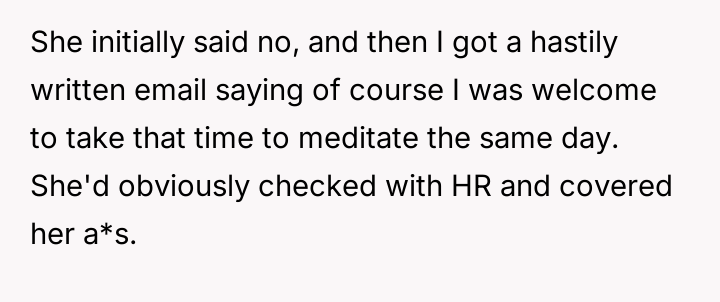
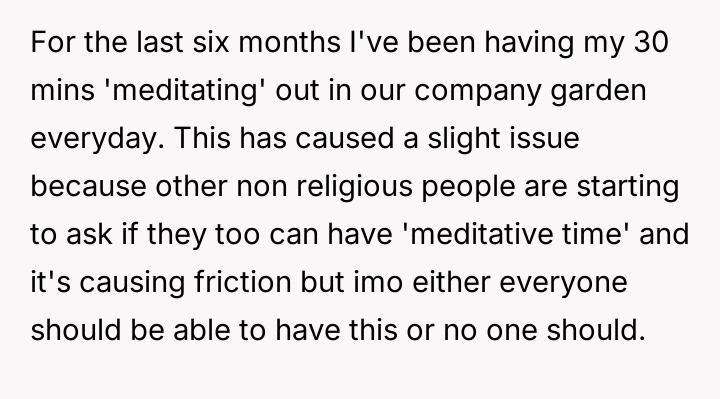
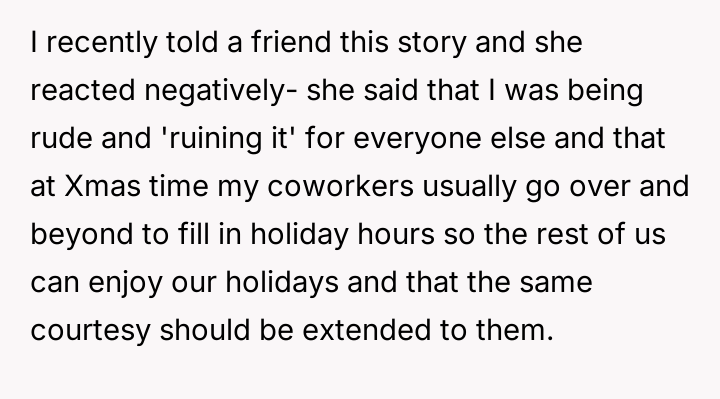

Subscribe to Our Newsletter
No spam, unsubscribe anytime. Privacy Policy
When the Crowd Speaks, It Echoes Loudly:
The internet jumped in fast, delivering everything from kind advice to cold truth. It’s a mix of empathy, outrage, and no-nonsense takes.
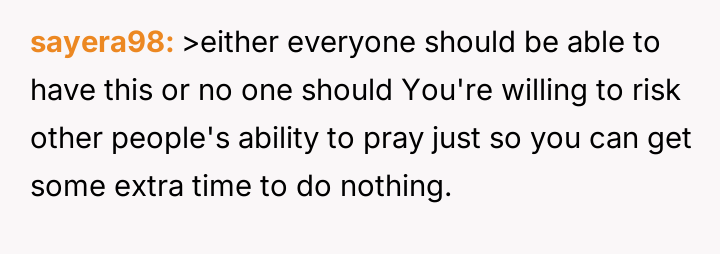

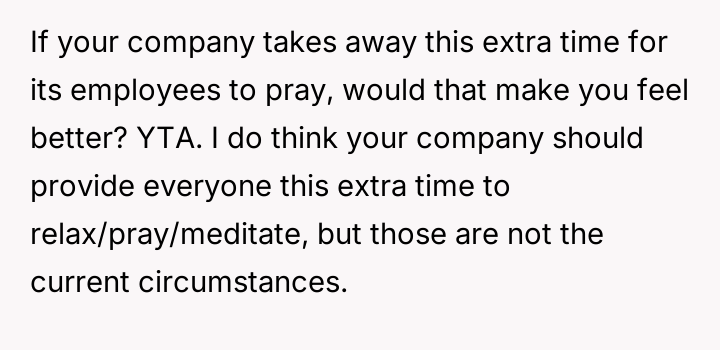
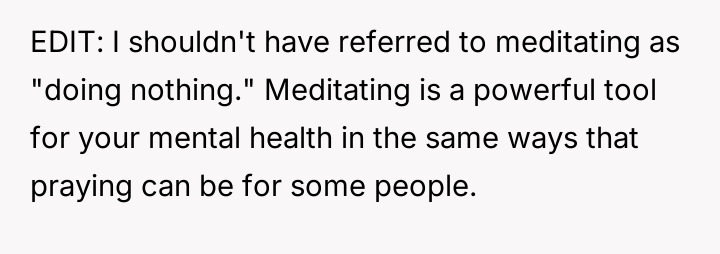




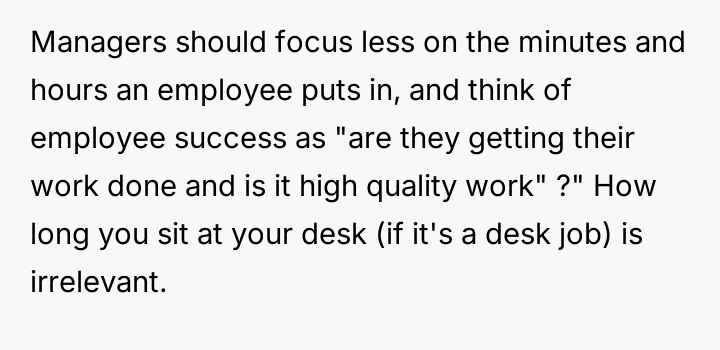
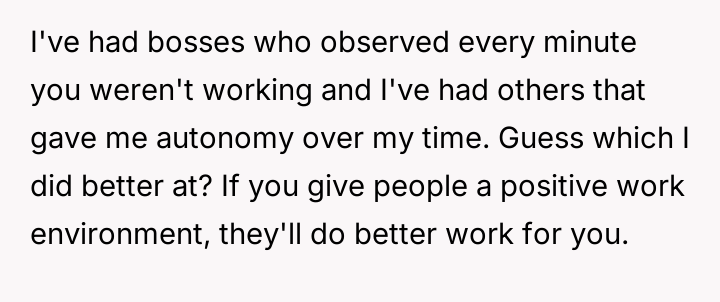
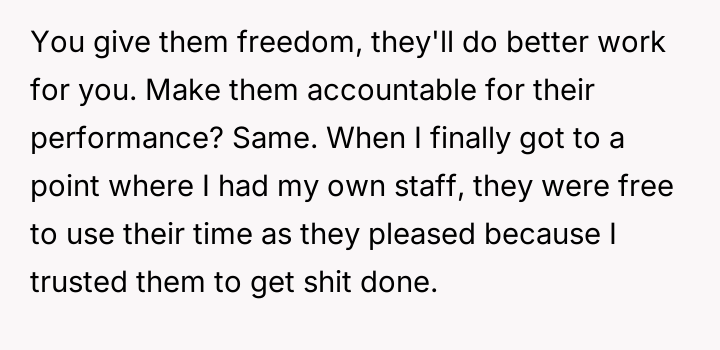
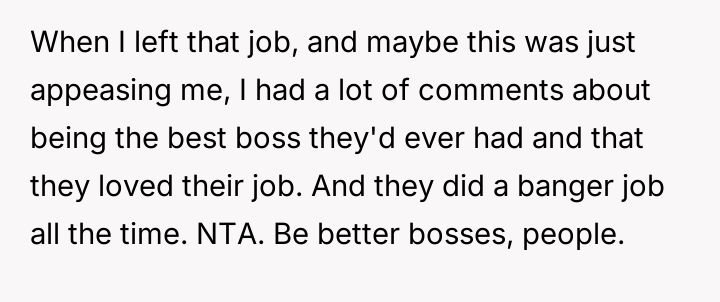
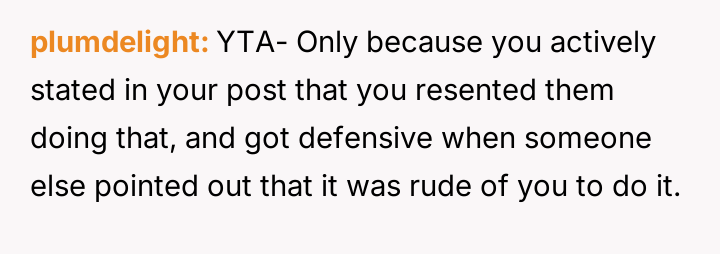
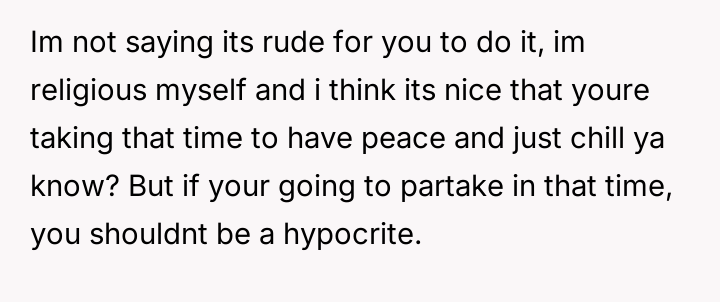
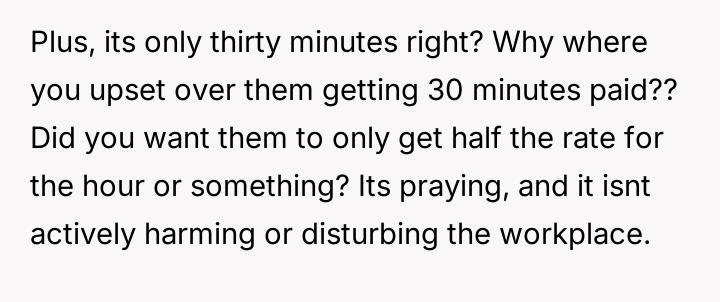
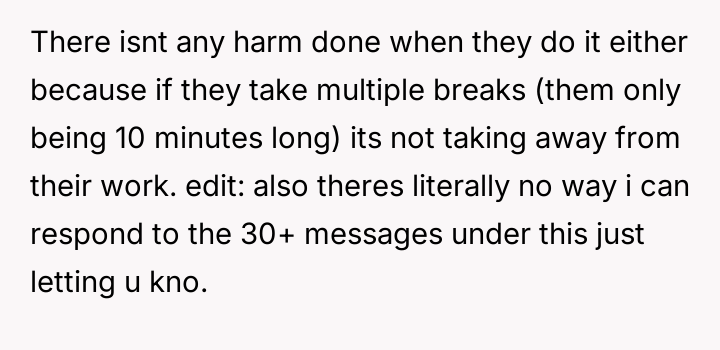
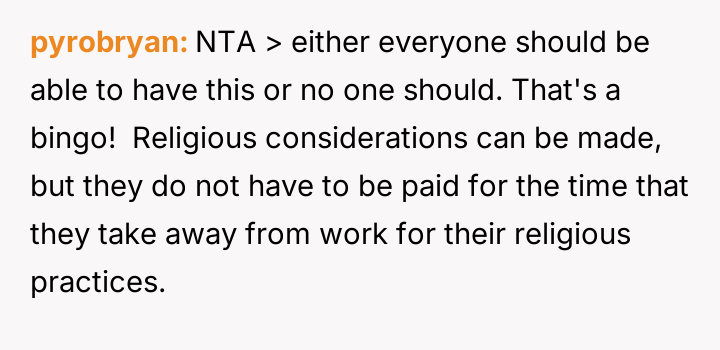
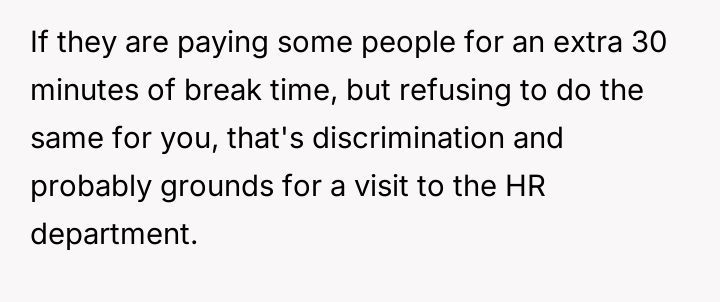
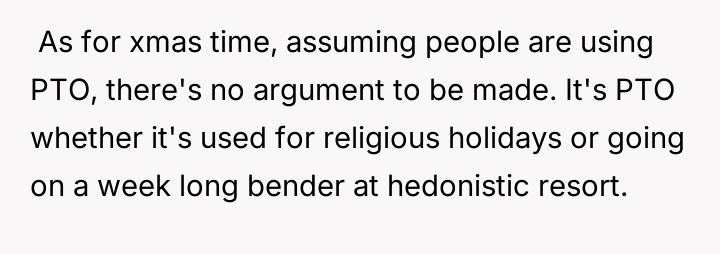
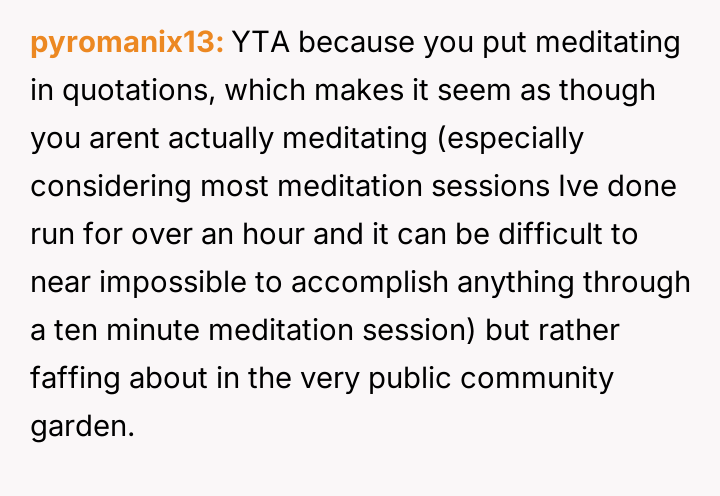
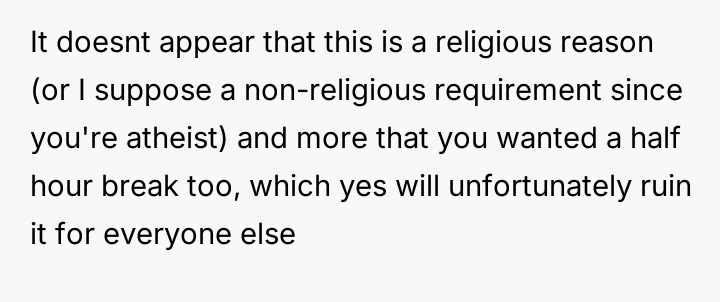
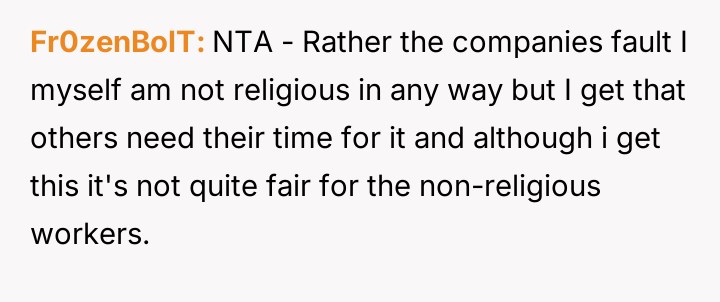
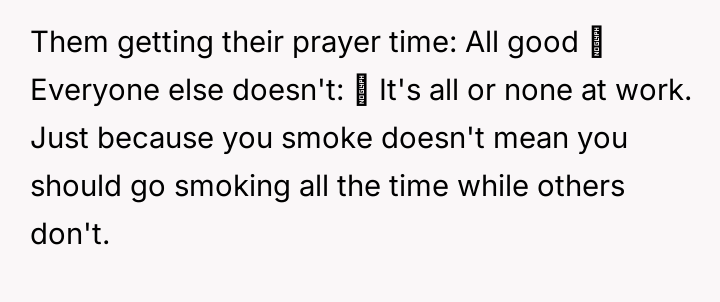
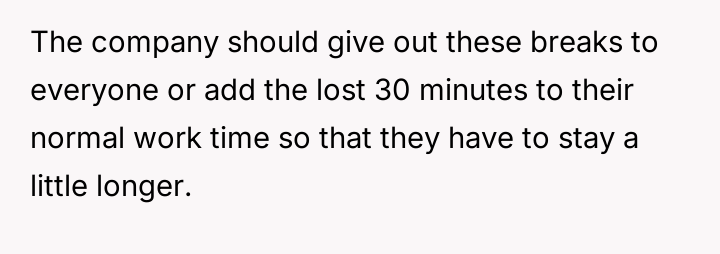
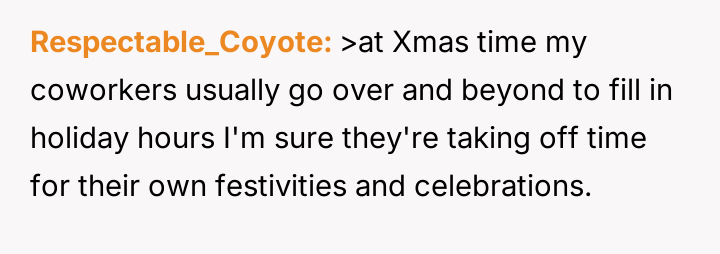
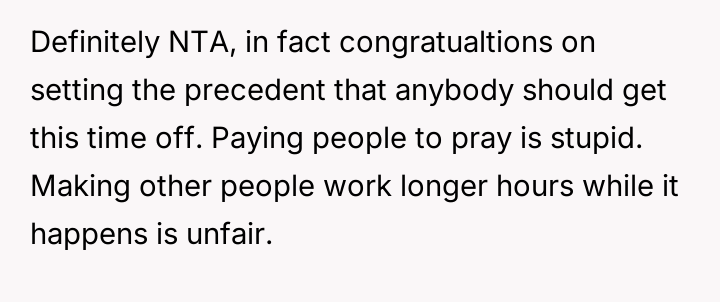
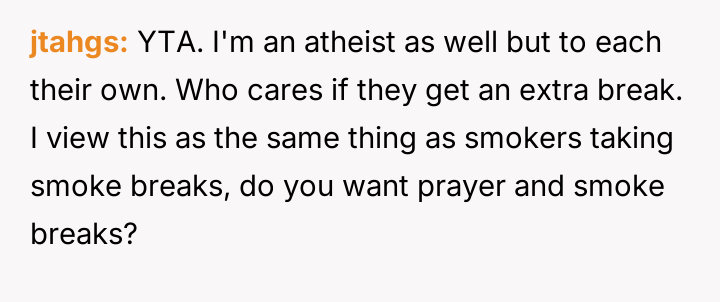

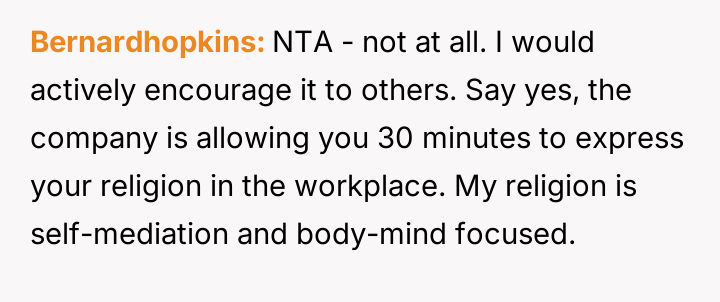

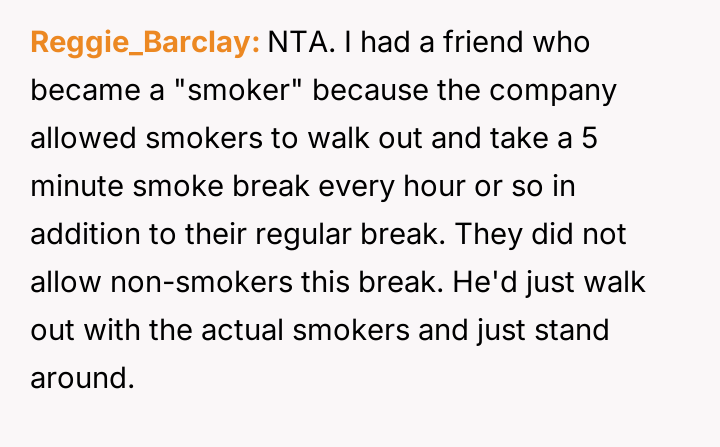
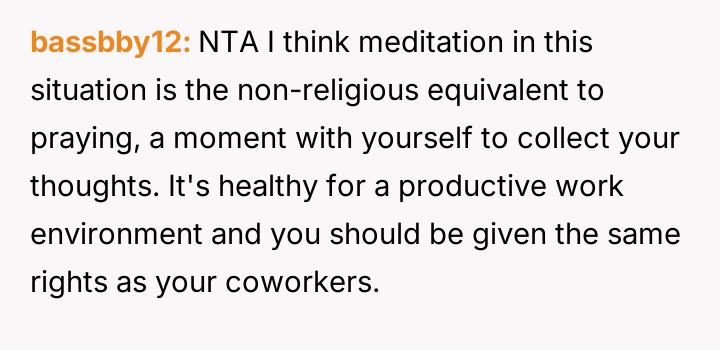
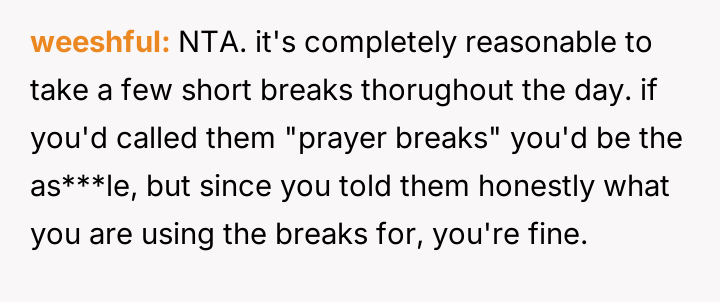
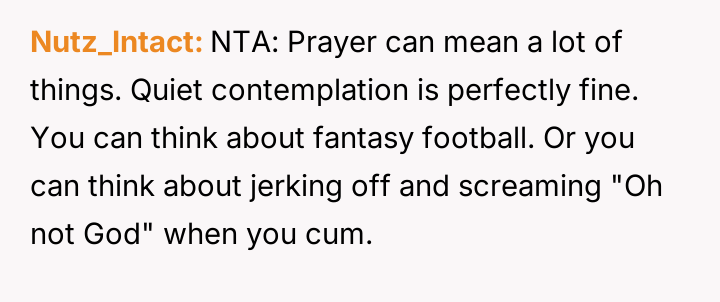
The original poster (OP) feels justified in seeking equal treatment regarding paid time off for personal reflection, directly challenging a workplace accommodation based on religious belief.
The central conflict lies between the OP's desire for fairness and the implied expectation that non-religious employees should not seek equivalent breaks, especially considering the goodwill shown by the religious group during holiday scheduling.
Given the established precedent of paid time off for religious practice, is the OP correct in demanding equal time for secular meditation, or is this an attempt to undermine a protected religious accommodation by forcing a change in workplace culture?

